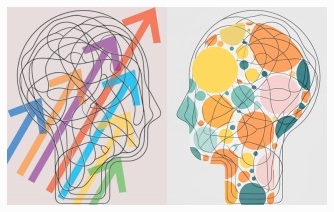Accept that some days you are the pigeon, and some days you are the statue.
—Scott Adams (American Cartoonist)
You don’t have to be great to start, but you have to start to be great.
—Zig Ziglar (American Author)
The world is shrinking together; it is finding itself neighbor to itself in strange, almost magic degree.
—W. E. B. Du Bois (American Sociologist, Activist)
I think we ought always to entertain our opinions with some measure of doubt. I shouldn’t wish people dogmatically to believe any philosophy, not even mine.
—Bertrand A. Russell (British Philosopher, Mathematician)
Empathy frequently informs our earliest days with our infants as we try to figure out what they need, how to comfort and satisfy them
—Katherine Ellison (American Journalist)
Man’s great misfortune is that he has no organ, no kind of eyelid or brake, to mask or block a thought, or all thought, when he wants to.
—Paul Valery (French Critic, Poet)
We can teach ourselves to see things the way they ARE. Only with vision can we begin to see things the way they CAN BE.
—Max De Pree (American Businessman)
The camera cannot lie, but it can be an accessory to untruth.
—Harold Evans (British-American Journalist)
You treat a disease, you win, you lose. You treat a person, and I guarantee you’ll win no matter the outcome.
—Robin Williams (American Actor, Comedian)
Fame is but the breath of people, and that often unwholesome.
—Jean-Jacques Rousseau (French Philosopher)
Neither man nor nation can exist without a sublime idea.
—Fyodor Dostoyevsky (Russian Novelist)
Gratitude is one of the least articulate of the emotions, especially when it is deep.
—Felix Frankfurter (Austrian-Born Jurist)
.jpg)
.jpg)
 Agassi casts himself as a victim of his circumstances, expressing a weariness with the grind—a sentiment many can relate to. While few may hate their jobs
Agassi casts himself as a victim of his circumstances, expressing a weariness with the grind—a sentiment many can relate to. While few may hate their jobs  We tend to see
We tend to see  You’re not stuck in busyness—you’re choosing it. That packed calendar, the blur of back-to-back tasks, the sense that your time isn’t your own? They’re symptoms of decisions made without reflection, not obligations
You’re not stuck in busyness—you’re choosing it. That packed calendar, the blur of back-to-back tasks, the sense that your time isn’t your own? They’re symptoms of decisions made without reflection, not obligations  Southwest Airlines didn’t rise to prominence through spreadsheets or sycophancy. It was built by a jolly, chain-smoking Texas lawyer named
Southwest Airlines didn’t rise to prominence through spreadsheets or sycophancy. It was built by a jolly, chain-smoking Texas lawyer named .jpg)
 These days, the moment boredom creeps in, we lunge for a distraction—scrolling, streaming, swiping. It’s less a decision than a reflex, like we’re allergic to silence.
These days, the moment boredom creeps in, we lunge for a distraction—scrolling, streaming, swiping. It’s less a decision than a reflex, like we’re allergic to silence. A thing can feel bad and be right.
A thing can feel bad and be right.